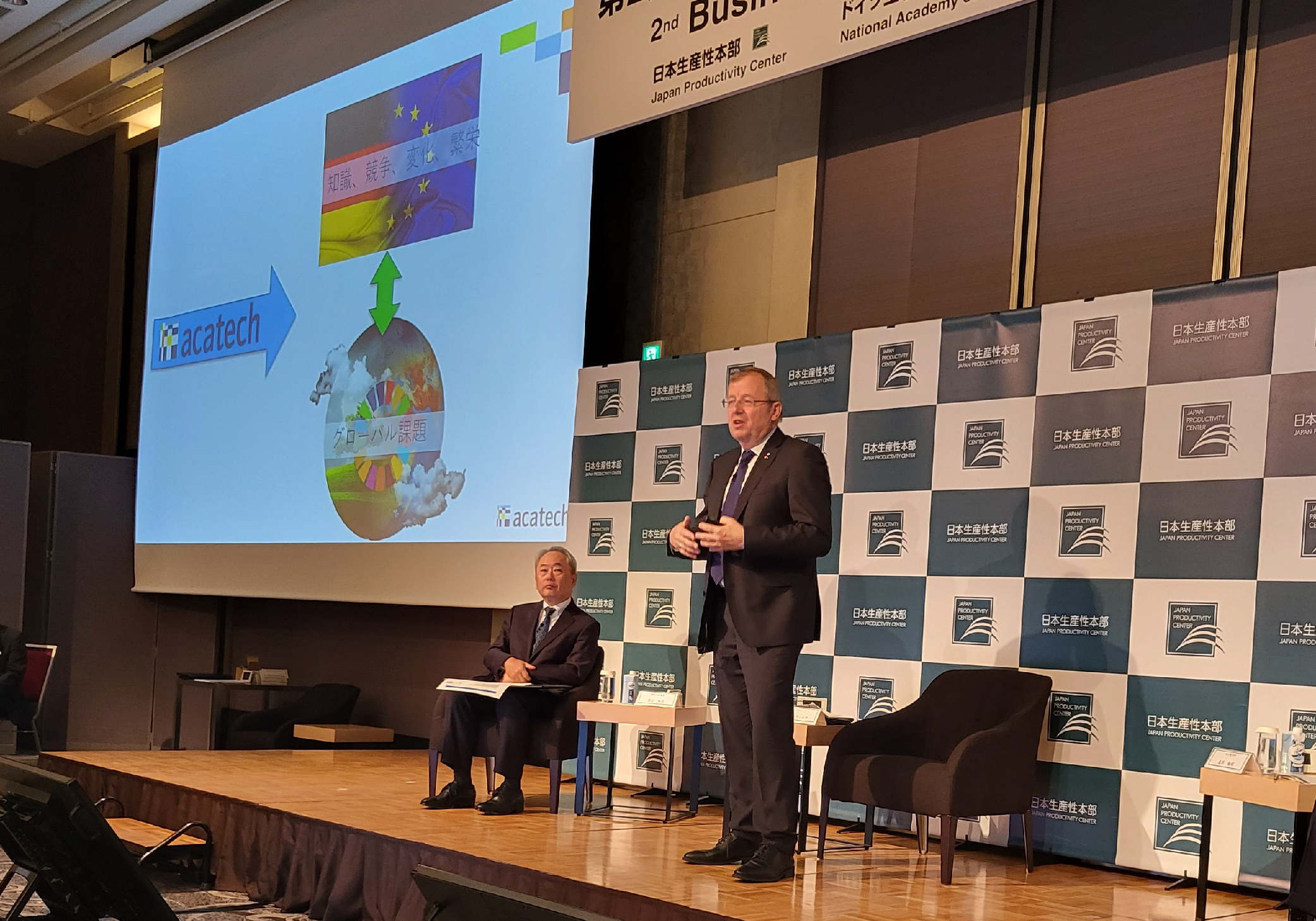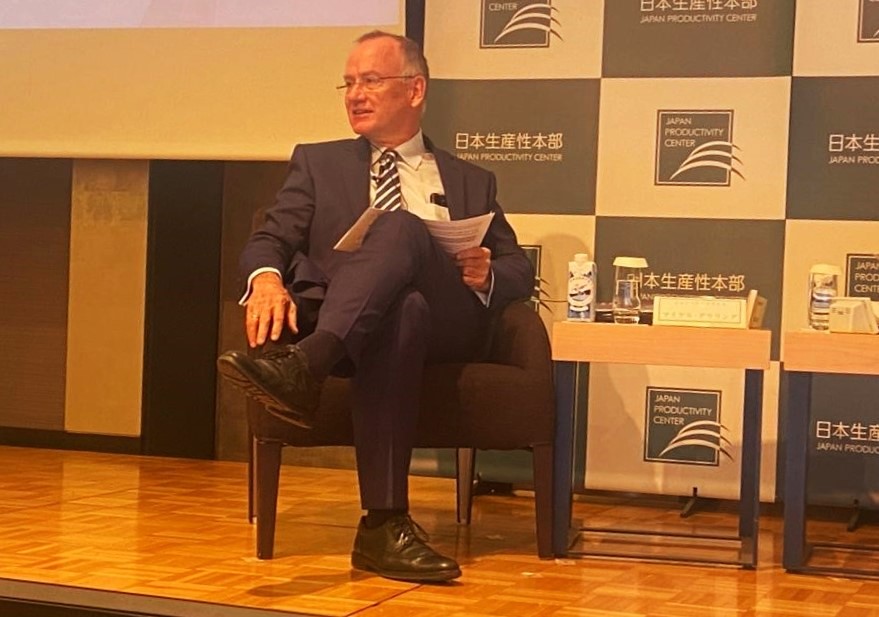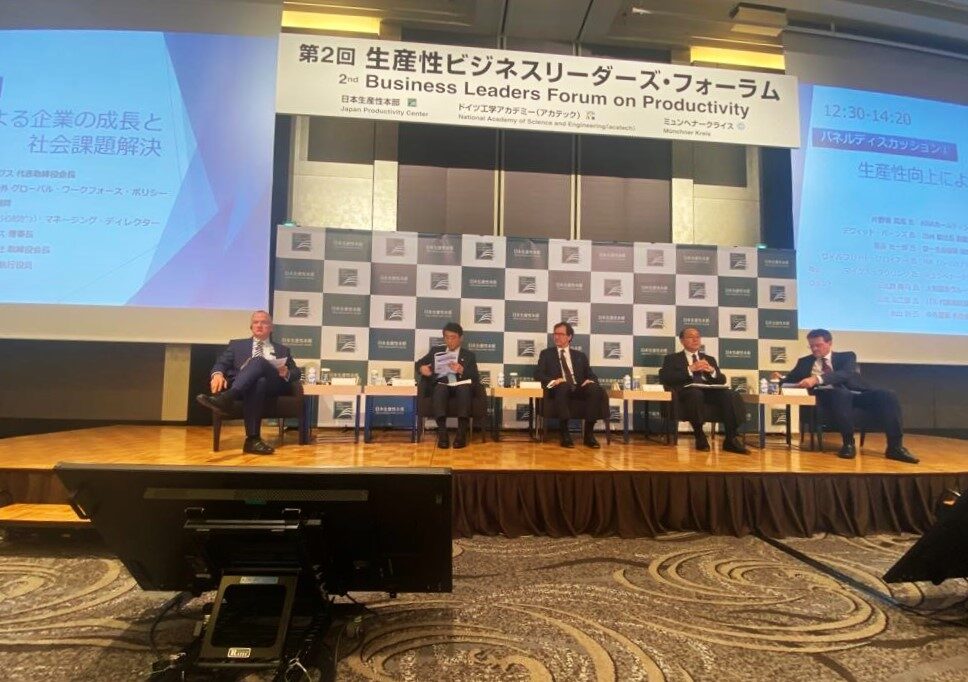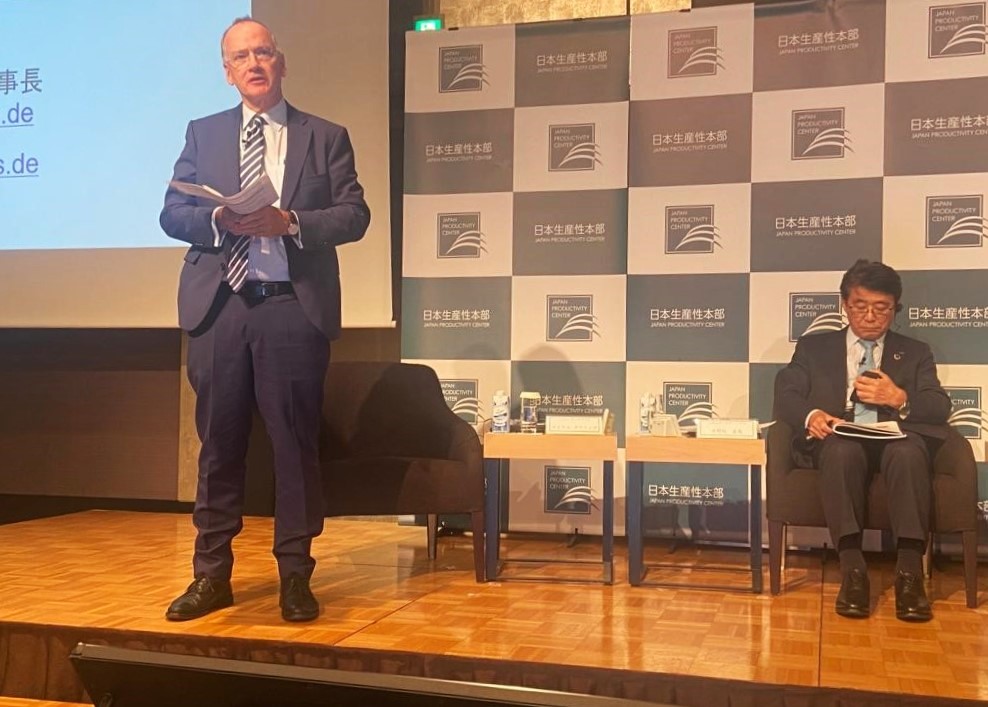Dialogue on productivity between leading representatives of science and industry from Japan, Germany and the USA

Berlin, 10 October 2023
Japanese, German and American experts from science and industry discussed productivity and competitiveness on 4 October 2023 in Tokyo, Japan. They regard productivity not only as a key factor in whether or not a new job is created but also as being a major determinant of the prosperity of a society. In this digital age, the pace of productivity growth has slowed or stalled in established industrialised countries. Based on the demographic trend, this is also a problem for Germany and Japan. The experts view the decline in productivity growth as a significant risk for the competitiveness of international industrial companies.
To discuss productivity in the digital age, the Japan Productivity Center in conjunction with acatech, MÜNCHNER KREIS and the Japanese-German Business Association (DJW) organised a forum for selected board members of renowned German, Japanese and American companies. Jan Wörner, acatech President, Michael Dowling, acatech member and Chairman of the Management Board of Münchner Kreis as well as Wilfried Breuer, Managing Director of Maschinenfabrik Reinhausen were the German representatives taking part in the dialogue.
In his keynote speech, Jan Wörner emphasised that an economy’s competitiveness is an important driver of growth and prosperity. Germany, said Wörner, has in recent decades benefited from the liberalisation of trade and from the growing international division of labour more than most other European economies. However, in his view, Germany’s trade-oriented business model is facing new challenges from greater dependencies, particularly with regard to the supply of energy and critical raw materials. Geopolitical shifts, such as the Russian war on Ukraine and the tensions between a number of Western economies and China, raise the question of whether strategic autonomy can be enhanced without impinging on foreign trade openness. He regards supply chain diversification as an important factor in reducing dependencies and increasing value chain resilience. While private sector responsibility is a cornerstone of this, in particular strategic alliances with countries that share European values and priorities in relation to democracy, human rights and the rule of law can also play a major role. He is therefore calling for openness to partnerships with third countries, not least in relation to global public goods, such as climate protection and public health.
In his opening, Michael Dowling stated that companies must see current megatrends such as the digitalisation and flexibilisation of the world of work as opportunities to ensure their competitiveness into the future. In particular, the meteoric integration of value chains within industrial production is opening up the possibility for companies to realise new innovation potential. In the age of the Industrial Internet of Things, the digitalisation of production facilities is giving rise to Smart Factories. The data continually being recorded in this process are subsequently integrated into the information systems and business processes of that company. To embrace the digital transformation and integration as well as the use of continuous data recording and storage, companies must increasingly put the focus on new digital business models and forms of inter-organisational cooperation. Traditional value chains must be “softened up” and engineered into network-like systems composed of companies, suppliers, customers and even direct competitors. This is the only way of connecting the interdependent groups of stakeholders in a platform-centred market structure, thereby ensuring companies’ competitiveness.
In his presentation, Wilfried Breuer concentrated on a specific example of productivity growth. He remarked that electricity is the backbone of the green industry of the future. In his view, digitalisation and the use of smart systems play a major part in network operators’ growth in productivity. In particular, intelligent integrated systems based on the Edge Computing paradigm can increase reliability and reduce maintenance cost. However, he believes that traditional organisational frameworks are jeopardising the urgently needed digitalisation of electricity networks, and is therefore calling for a rethink.
Japanese and American board members of companies including ANA, IGPI, Hitachi, Dai-Ichi Life Insurance and IBM Corporation highlighted the challenges they face and the opportunities presented to them. The cooperation partners’ aim is to come up with courses of action and recommendations for productivity growth in the respective countries based on their discussion of current challenges relating to productivity.





